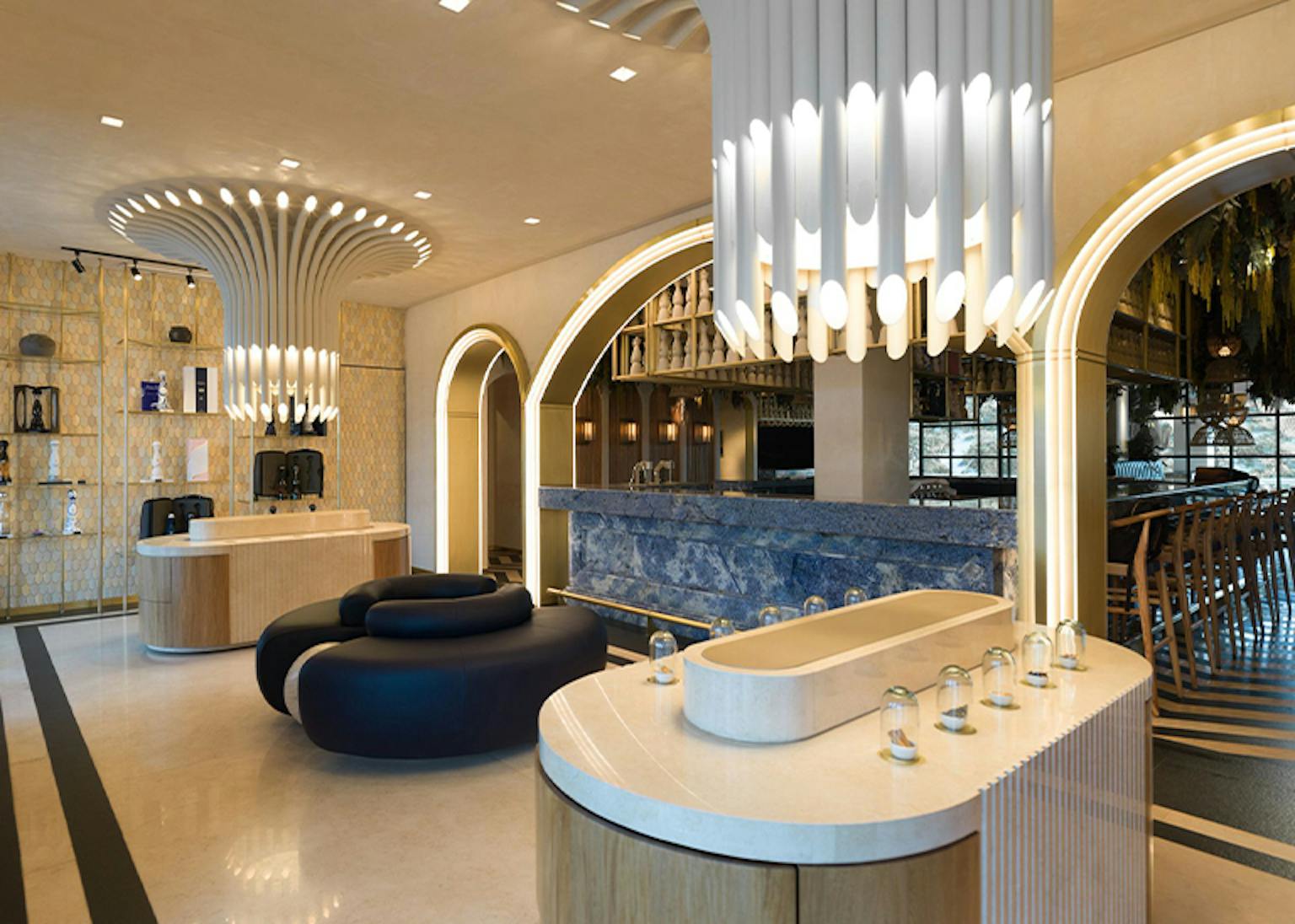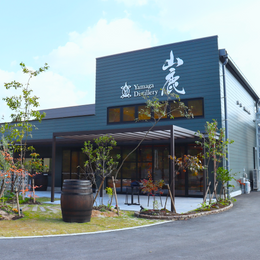
Ever heard of Clase Azul?
Of course you have! Clase Azul is a high-end Tequila brand founded in Mexico in 2000 which boasts some serious star power, eye-watering price tags, and undeniably beautiful ceramic packaging.
You’ll often find celebrities and rappers like 2 Chainz and Kanye West sipping on and waxing lyrical about Clase Azul. It’s street cred among the rich and famous also explains its eye-watering price tags, ranging from over $400 for its popular Reposado expression to a logic-defying $30,000 for a gold-encrusted Cale Azul bottle.


In an episode of "Most Expensivest", 2 Chainz is joined by Arturo Lomeli and Juan Sanchez of Clase Azul Spirits to sample their tequila expressions. Click here to watch. (Image source: GQ)
Yet, love it or hate it, you can't deny that Clase Azul’s tequilas know how to command your attention. Each Clase Azul expression comes in its own unique beautiful ceramic decanters, handcrafted for two weeks at a time by local artisans in Santa Maria, Mexico. You’ll find different variations on the ceramic decanters, as each are designed to reflect a certain personality and concept.

How Clase Azul Was Started:
It began with a 1990s Mexican telenovela, Azul Tequila. Well, sort of.

The popular Mexican telenovela, Azul Tequila (Image Source: Zuba Producciones)
Back when the telenovela was at the height of its popularity, a young Mexican entrepreneur Arturo Lomeli was looking to start a new tequila brand of his own, after two previous failed attempts to start a pomegranate punch brand called La Pinta and a tequila brand called El Teporocho. At that time, he had taken a liking to the telenovela’s titular female star, Barbari Mori, and decided it wouldn’t be a bad idea to name his new tequila brand after “azul”, the Spanish word for blue.
Thus, Clase Azul was born. The first ever Clase Azul Tequila Reposado was stocked on shelves in 2000, but it was only a year later when Clase Azul’s signature ceramic decanter came into the picture. In 2001, Lomeli met Tomas Zaldivar, who was already working with artisans in Santa Maria to make ceramics. Zaldivar joined Lomeli in expanding Clase Azul’s line of expressions and recruiting artisans to help create the now-iconic ceramic decanters.

Clase Azul works with local artisans in Mexico to handcraft the iconic ceramic decanters. (Image source: Clase Azul)
Now approaching its 25th Anniversary, Clase Azul has grown into a household name, synonymous with luxury tequila. Credit where it’s due, Clase Azul has certainly paved the way for dispelling notions of tequila as a low-quality spirit reserved for college-style shooter shots and the subsequent hangovers, and helped shape a new perspective of tequila as a luxurious sipping spirit to be thoughtfully savoured.
What to Try From Clase Azul:
The brand’s core offerings currently includes four types of tequila expressions and two types of mezcal expressions. These are as follows:

- Clase Azul Plata:
The most affordable expression in the Clase Azul line-up. The Plata is an unaged Blanco tequila that comes in a clear decanter. Expect sharp, crisp and bright notes of orange, lemongrass and mint, with some slight vanilla notes.

- Clase Azul Reposado:
The workhouse of the brand and by-far the most commonly spotted and recognisable of the Clase Azuls. The Reposado is aged for eight months in American whiskey casks, and comes in its cobalt-blue hand painted decanter marked with its classic feathered design. Expect more syrupy, vanillic and nutty notes, impared by the bourbon oak.

- Clase Azul Añejo:
Your wallet is starting to get nervous at this point, as the Clase Azul Añejo can cost up to $1,000 at some points. This Añejo expression is aged for 25 months in American whiskey casks, and is features 24K gold paint on a decanter that was inspired by the Mazahua indigenous culture. Expect the longer influence of wood to contribute to more toffee, nutty and toasted notes.

- Clase Azul Ultra:
Dubbed the “crown jewel”, the Clase Azul Ultra is a collector’s item that your bank account might get mad at you for. It can retail for between $1,000 to $2,000 dollars depending on where you get it. The Ultra spends a total five year being cask aged, first in American whiskey casks before being transferred to ex-sherry Spanish casks. Expect notes of deep dark fruits like plums and apricots, mixed with the bourbon-influence of maple syrup and hazelnut.

- Clase Azul Guerroro Mezcal:
One of two Clase Azul mezcal expressions, which can retail for around $1,000. The Guerroro Mezcal features distilled papolte agave from the state of Guerrero. Experience the influence of terrior, as here, Guerroro’s coastal climate and the green forestry manifests in a mezcal with unique woody, floral notes of rosemary, wood, and flowers together with some citrus undertones. The hummingbird featured on the accompanying jade decanter represents the fabled messenger of the Gods, a homage to the mystical and celestial connection of the Fifth Sun – a pre-Hispanic God – to the Mexican region of Guerrero.

- Clase Azul Durango Mezcal:
The other of two Clase Azul mezcal expressions, which is slightly more affordable than the Guerroro. The Durango Mezcal features distillated Cenizo Agave, a wild agave grown in Durango in Northern Mexico. Expect smoky, herbal notes in this mezcal due to the influence of mineral-rich natural spring water near where the agave is grown. The decanter features a dark, textured surface inspired by the beauty of black clay, and is made by artisans from the Mazahua and Wixárika communities.
Pssst… You Either Love It Or Hate It
One might even say that Clase Azul is the Macallan of Tequila. While it is coveted and heavily watched by tequila fans, and new expressions seem to get snapped up and resold at even more astronomical prices on the second-hand market, Clase Azul is also inevitably the target of many tequila purists’ disdain.
Fans of Clase Azul often rave about the smoothness and subtle sweetness of its spirits. Generally, the consensus is that Clase Azul is a great sipping tequila – it’s highly approachable and easy-going, making it an ideal “gateway” drink for those new to drinking tequila or mezcal neat.
Yet, on the flip side, some eagle-eyed tequila purists have advanced critique that the smoothness and sweetness that defines Clase Azul tequilas has been “artificially engineered” through the addition of added additives. You see, there is a loophole in the Tequila labelling laws that allows brands to add up to 1% in additional flavourings or additives to their agave spirit, while still retaining the right to label their tequila expressions as “made from 100% agave”. Purists argue that is it only by exploiting this loophole that Clase Azul has been able to achieve a certain flavour profile that wouldn’t naturally occur otherwise.
Where you stand in this debate ultimately boils down to your own personal stance on added additives and sweeteners in tequila. As for my take? I believe it’s all too reductive to rule out a particular brand just because additives were used. If it does enhance the taste and make the experience of drinking enjoyable for some, then by all means, I have no issues! However, where I think most people can start to balk is when they come up against Clase Azuls’ typical price tags, which can range upwards of $1,000. So while you won’t catch me sending hate to no Clase Azul fans (because heck, it is enjoyable!), I do think more consumers should be aware that what they are purchasing may not be truly reflective of a what authentically 100% agave tequila is about.
Going Beyond the Bottle: Clase Azul Hospitality

The Clase Azul Boutique at Los Cabos. (Image source: Clase Azul)
Given that Clase Azul has grown from simply being a tequila brand to now becoming a lifestyle signifier, it should perhaps come as no surprise that the brand has gone beyond the bottle to offer offline lifestyle services.
Just last year, the brand opened its first offline luxury hospitality concept, the Clase Azul Los Cabos in Mexico. The Clase Azul Los Cabos was launched by the brand’s hospitality arm, Clase Azul Destinations, to serve as an offline space for the brand to deliver novel, sensorial experiences to its consumers. Visitors to Clase Azul Los Cabos can expect to find a dedicated tequila and mezcal bar called the Clase Azul El Bar, as well as three restaurants and a shopping boutique, where rare, limited edition bottles will be sold exclusively. Those keen to book a table at any of these restaurants can make their reservations here.
It’s a savvy move that will surely cement Clase Azul’s high-end positioning in the realm of fine tequila. Clase Azul’s message to the world is crystal clear: you can love me or hate me, but you certainly can’t ignore me!

@lotusroot518






